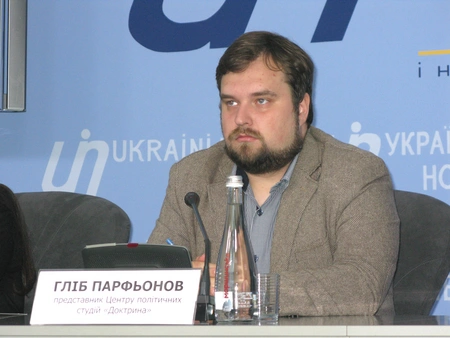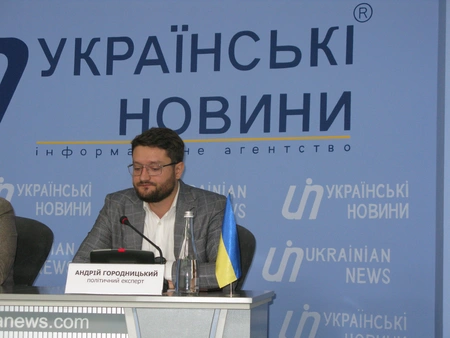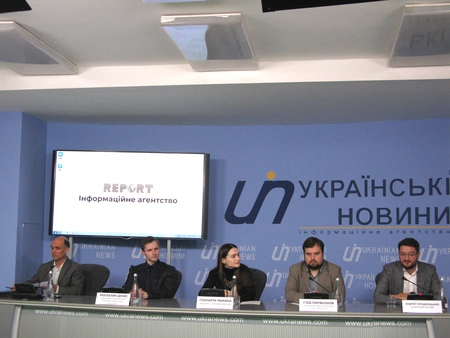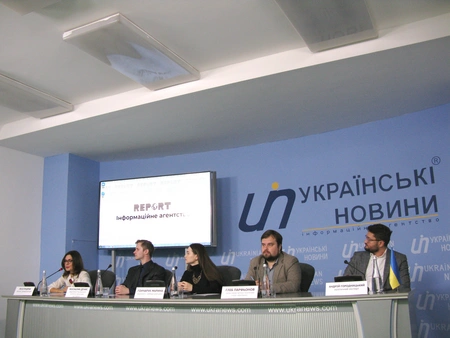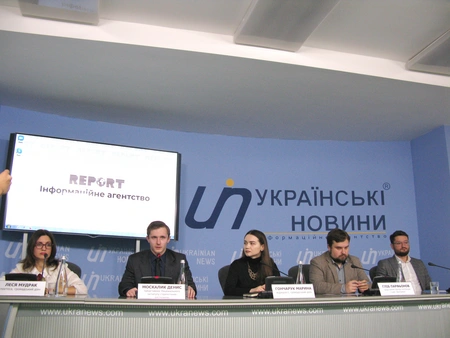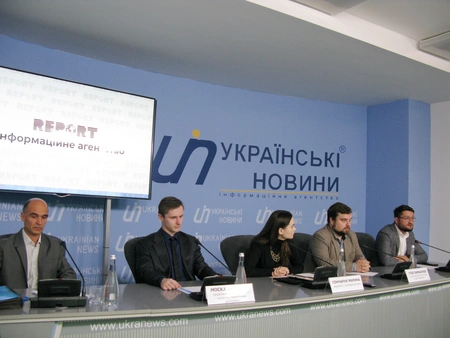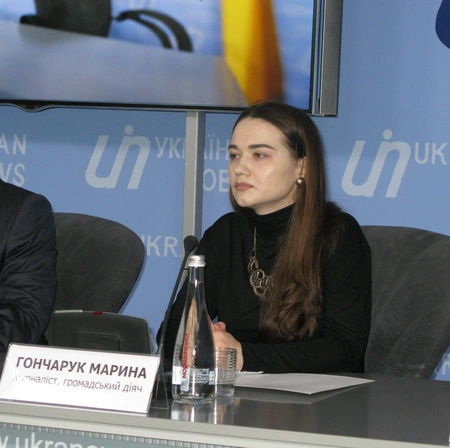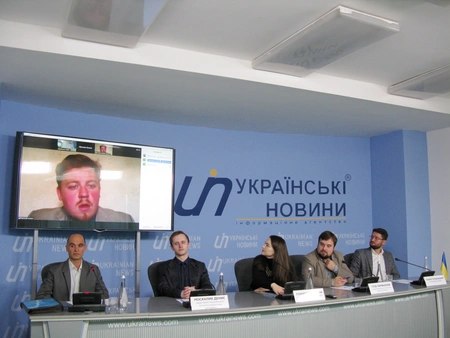Kiev hosts round table "The war in Karabakh: a view from Ukraine"
- 05 October, 2020
- 13:25
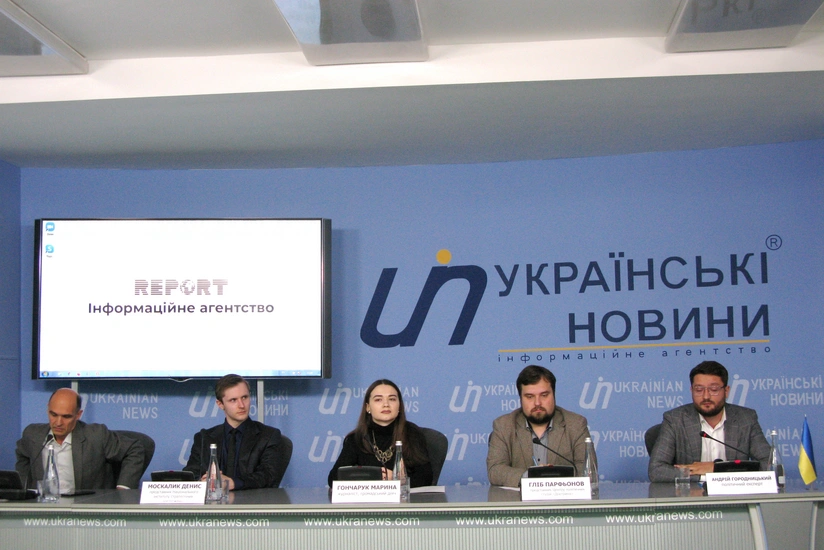
The Press Center of the "Ukrainian News" news agency in Kyiv hosted a round table on the topic "The war in Karabakh: a view from Ukraine". During a round table organized by the Report Information Agency, Ukrainian political scientists, experts, historians, and cultural figures discussed Karabakh's situation and the impact of events on international processes. Moderator of the event, journalist, public figure Marina Goncharuk noted that the attention of the world community and region is now upon Karabakh:
"It is very important that Ukrainian society has high-quality knowledge about the prehistory of the conflict, historical realities, and reliable information about what is happening. Today we are gathered here to hear expert opinions and analytics from leading experts in this field."
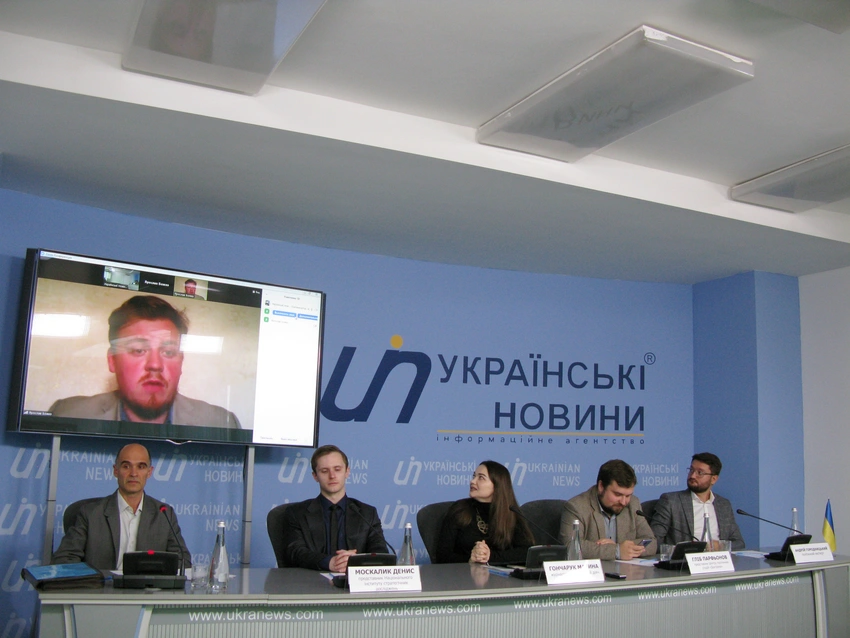
"The key problem that determined the reality of a new round of the conflict in Nagorno-Karabakh was the ineffectiveness of the settlement models from the international community. In fact, none of the influential players reacted to the provocations that occurred in the summer and preceded the exacerbation by stimulating it. Ultimately, Ukraine's negotiations on the Donbas in Minsk may also find themselves at a dead end. So it is important that the Ukrainian society perceives the conflict in Karabakh realistically, "said Yaroslav Bozhko, Head of the Center for Political Research "Doctrine".
"The current outbreak of the war in Karabakh is an example of the development of such a frozen conflict and the consequences of the political process around it and its results. Thus, we can look into the future of similar conflicts that appeared later than the war in Karabakh. The ongoing fighting is essentially a continuation of the July clashes in the Tovuz region and the result of unsuccessful attempts to resolve the conflict, which intensified against the background of attempts to conduct military actions on the internationally recognized border of Azerbaijan and Armenia.
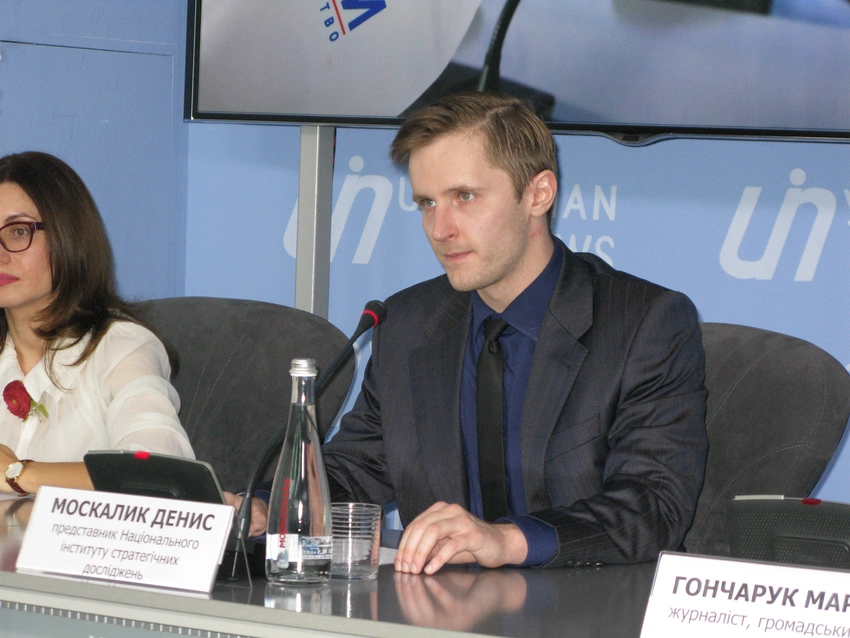
The battles that are now taking place have demonstrated a significant increase in the combat effectiveness of Azerbaijani Armed Forces, including through the active and successful use of the latest weapons, UAV's, and loitering munition. Therefore, the conflict should be studied in detail by representatives of Ukraine, since that experience is of extraordinary value both at the political-strategic and tactical levels," said Denis Moskalik, a representative of the National Institute for Strategic Studies.
Alexander Dudnik, Candidate of Historical Sciences, a specialist in international relations, noted that Ukraine, in resolving the Nagorno-Karabakh conflict, unlike Russia, does not recognize the Kosovo precedent as a mechanism for resolving the conflict. "Such international principles as state sovereignty, territorial integrity, and inviolability of state borders are a priority for Ukraine. It is necessary to note that Armenia is manipulating the so-called right to self-determination of the nation. After all, the Armenians already have a state within the internationally recognized borders.
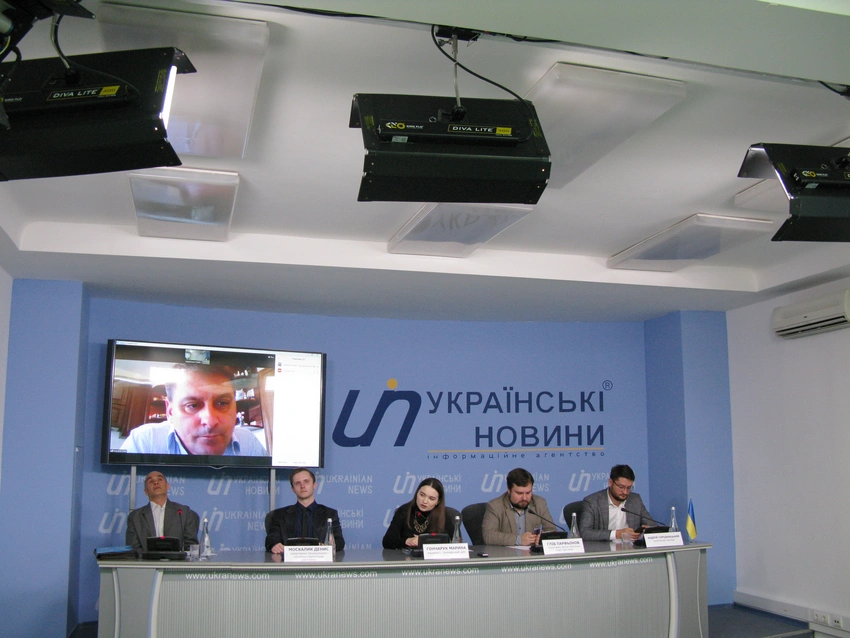
If you follow their arguments, then the numerical Armenian diaspora of Ukraine may develop the idea of creating another one of its own within the framework of our state. Ukraine's priority complies with international law. Also, Ukraine has always opposed the introduction of CIS peacekeeping troops into the conflict zone and, in general, their stay in the conflict zone, especially after the Khojaly tragedy. In particular, a few days after the Khojaly tragedy, then President of Ukraine Leonid Kravchuk made a demand for the withdrawal of CIS troops from the conflict zone, "Dudnik said.
"Azerbaijan's return of its territories can significantly change the balance of power in the region. I would also like to note that the situation is developing quite rapidly.
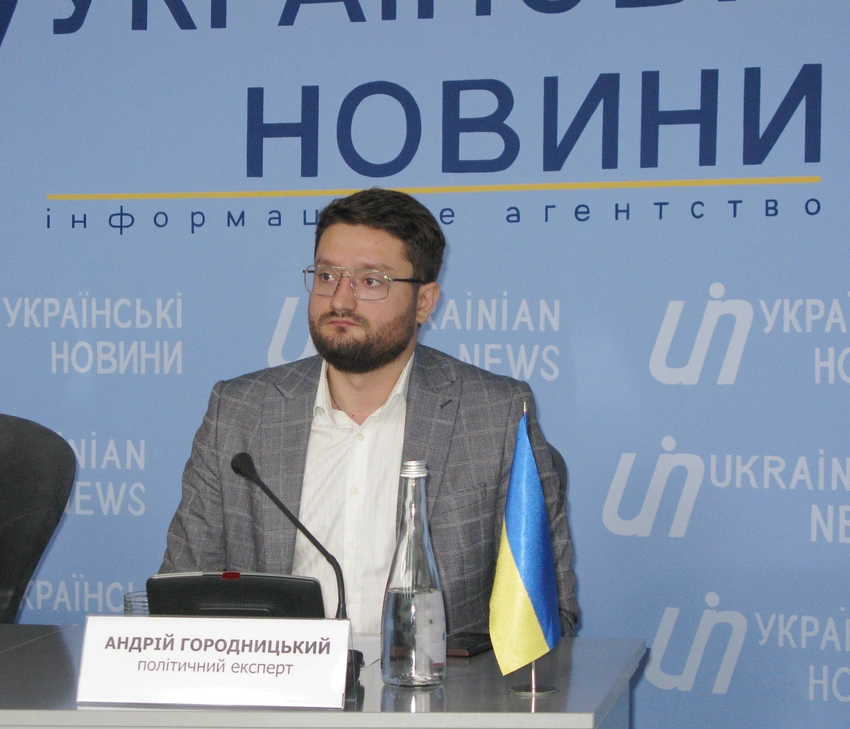
The Azerbaijani army is actively advancing in the liberation of territories. Unfortunately, the world community is passive in the issue of the requirement to comply with international law. Armenia's actions towards Azerbaijan pose threats to economic and military security in the region, "said Gleb Parfenov, Head of the Security Policy Department of the Center for Policy Studies "Doctrine."
Political expert Andrei Gorodnitsky said that the Minsk agreements guarantee the preservation of the war, and the Minsk format is incompetent. "Azerbaijan is tired of endless waiting, so now we can see that the use of force to liberate the occupied territories is also a way out of the situation. We must keep this in mind. Also, the development of the situation depends on the position of the geopolitical leaders, "Gorodnitsky said.
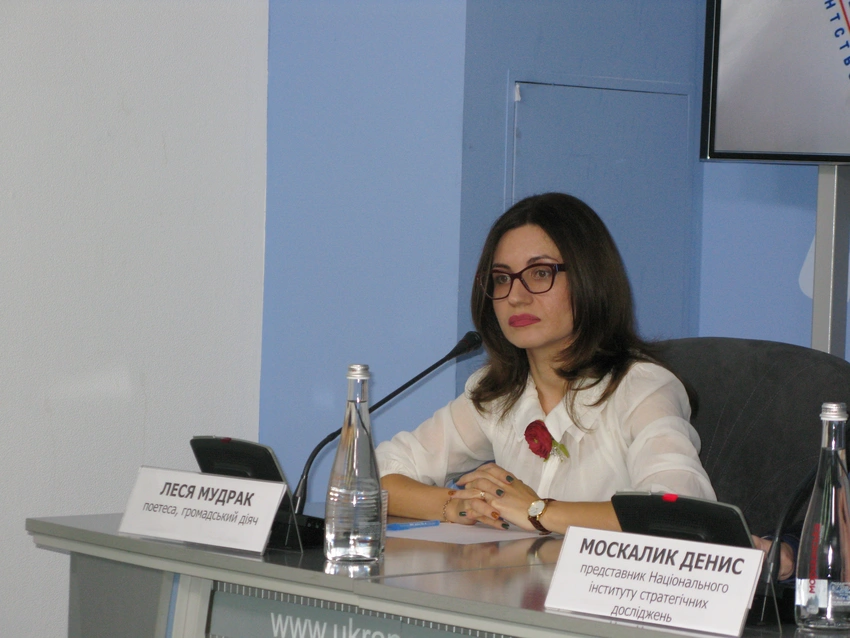
Ukrainian poetess, public figure Lesya Mudrak said that while visiting Azerbaijan, she was convinced of how intercultural and interreligious dialogue is being promoted at the country's state level. "Azerbaijanis, like Ukrainians, are very sincere, tolerant, and friendly. Our prayers are with the Azerbaijani people today. After all, we, like no one else, understand what the Azerbaijani people feel now. I believe that the territorial integrity of our countries will be restored, and there will be peace on our lands, "Lesya Mudrak said.
Ukrainian historian, scientist Oleg Kupchik noted that Azerbaijan has the right to restore its territorial integrity and acts within the international law framework.
"Azerbaijan's actions are legal and fair. Ukrainians understand well what is happening now and support Azerbaijan, just like Azerbaijan supports us and the territorial integrity of Ukraine," Oleg Kupchik stressed.
